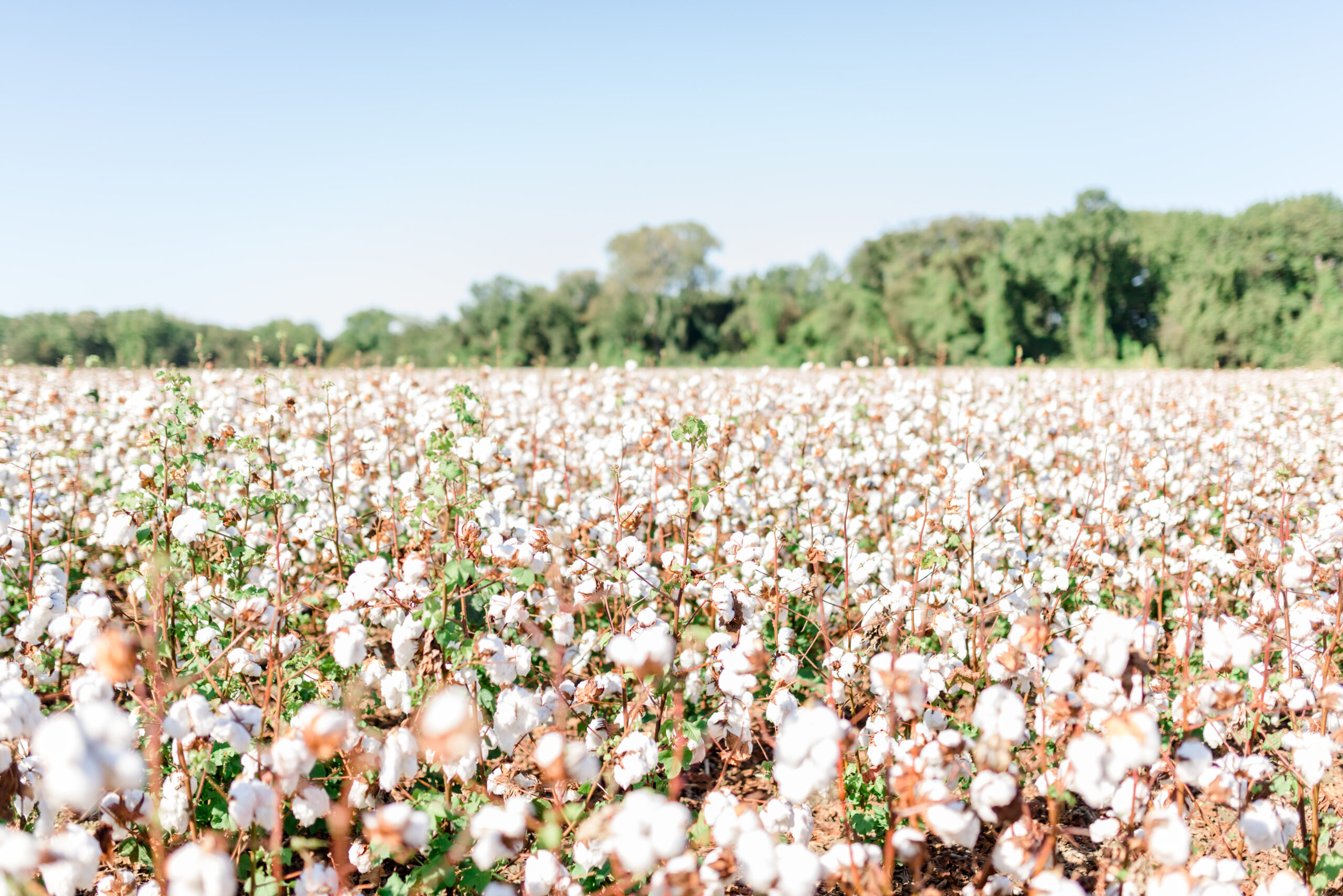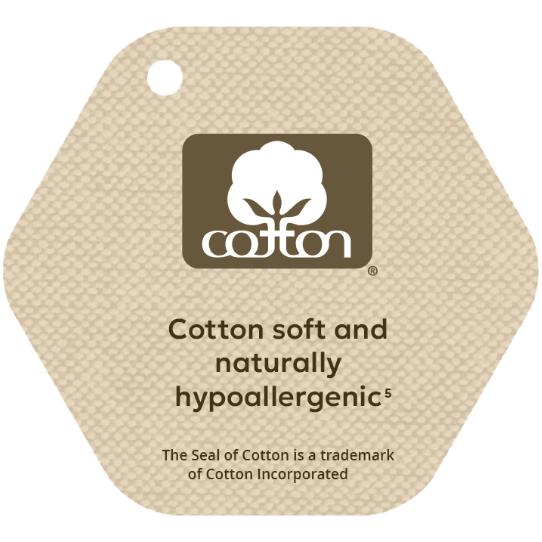Why Cotton?
Cotton checks all the boxes: It’s comfortable, durable, and sustainable. From the farm to the closet, it’s a good fit for consumers’ needs and our world’s.

Consumers Love Cotton
Cotton is a favorite among consumers. In 2023, 76% of consumers surveyed said cotton, cotton blends, or denim are their top preferred materials for apparel. From quality and functionality to durability and comfort, consumers prefer cotton.
Performance Technologies
Cotton truly is a versatile material. Durable and long-lasting, cotton is an ideal fabric for moisture wicking, thermal control, water repellency, or wrinkle-free technology. Learn more about performance technologies that make cotton so versatile.
Sustainability
From selecting seed to cotton harvest, farmers take care to grow cotton with resources and the environment in mind, including using regenerative agricultural techniques. As a natural fiber, 100% cotton textiles are biodegradable1 and compostable,2 while synthetic fibers are not.
Traceability
Knowing where cotton comes from and how it’s been processed builds transparency and trust in the supply chain. In the U.S., cotton is traceable from the gin to the mill and federal agencies such as the EPA, FDA, and OSHA regulate cotton production, ensuring data is publicly available.



of consumers say cotton, denim, and cotton blends are their favorite fabric to wear.4
of shoppers say they would pay more for apparel made from natural fibers like cotton.4
The Power of the Seal


Leverage The Seal
Consumers trust cotton and recognize The Seal of Cotton as a symbol of quality and comfort. When they see the seal and know a product is cotton, 82% of consumers say they can rely on the product or brand it’s associated with.6 Contact us today, and we’ll help you leverage the seal for your brand.
Page References
Ankeny, M., Daystar, J., Goller, C. C., Pawlak, J. J., Venditti, R. A., & Zambrano, M. C. (2020). Aerobic biodegradation in freshwater and marine environments of textile microfibers generated in clothes laundering: Effects of cellulose and polyester-based microfibers on the microbiome. Marine Pollution Bulletin, 151. https://doi.org/10.1016/j.marpolbul.2019.110826
Li, L., Frey, M., & Browning, K. J. (2010). Biodegradability Study on Cotton and Polyester Fabrics. Journal of Engineered Fibers and Fabrics, 5(4). https://doi.org/10.1177/155892501000500406
Cotton Incorporated 2020 Lifestyle Monitor™ Survey
Cotton Incorporated’s Lifestyle Monitor™ Survey, 2024
Cotton Incorporated. (2020). Cotton Applies Hard Science to Sensitive Skin. https://www.cottonworks.com/wp-content/uploads/2020/05/Cotton-Hypoallergenic-Brochure.pdf
Cotton Incorporated 2023 Seal of Cotton survey, a survey of 1,500 U.S. consumers conducted January 30-February 14, 2023.